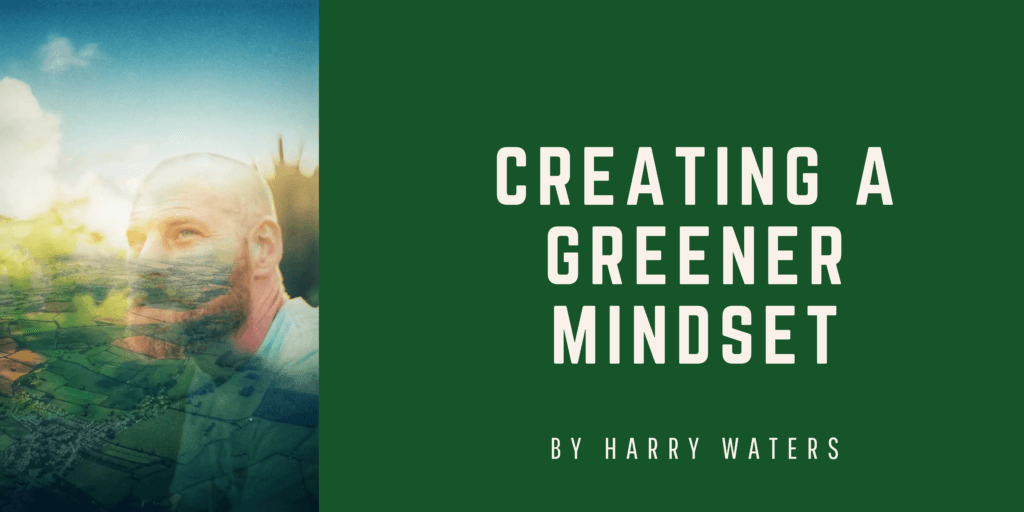With the recent Intergovernmental Panel on Climate Change (IPCC) report showing the future of the plant is at tipping point, something experts seem to have been saying for the past decade, not to mention the 26th UN Climate Change Conference of the Parties (COP26) only a matter of days away, more than ever the focus on environmental sustainability is at the forefront of everybody’s mind, not just teachers and students, but people the world over.
The questions I often ask myself are, is it up to us as teachers to lead the way? Or should we be led by the curriculum and our governments? Or is the responsibility one that lies at the feet of parents?
The answer to that second one is clear of course that the curriculum and our governments should be leading the way, but the fact of the matter is they aren’t. The recent IPCC report showed urgent measures needed to be taken to stop the climate crisis, but our leaders continue to search for oil, they continue to open more coal mines.
Some governments have made clear changes to curricula, like here in Spain and in Australia where there is a big focus on sustainability, but despite all these words followed up with actions in Australia for example there’s still a huge reliance on fossil fuels and their Prime Minister seems to have absolutely no interest whatsoever in attending COP26, quite possibly due to their love of fossil fuels.
These world leaders sometimes seem to try and talk the talk. Sadly, they most certainly aren’t walking the walk. What we need to be asking ourselves is: What can we do as teachers to really make a difference, and how can we help the youth movement continue to grow and gather pace?
We as teachers are amplifiers, we can pass on a message that will be amplified by our students to their friends and their families.
If we are going to make our students more aware of climate change, first we need to connect them to the planet. We can’t simply stand at the front of the classroom, shouting statistics and telling them all the bad things that banks, oil companies and agricultural firms are doing. First, they need to love the planet before they can hate the things destroying it and focus their attention on protecting it.
Without rewriting the entire syllabus, what can we actually do? There are a some very simple steps we can take to plant the seed of environmentalism and wake our students up to a greener world.

The easiest way to plant that first seed of environmentalism is to bring a bit of nature into the classroom. What I suggest is get yourself a class plant or 10. It’ll brighten the classroom up a little bit. It would also increase the oxygen levels which would lead to cleaner air and raised awareness particularly towards the end of the day. The simple act of bringing a bit of greenery into the classroom can also lead to all sorts of projects, be it how much your plant has grown, or if it’s got any more leaves. From there you can go in and propagate the plant and you can turn your classroom into a regular indoor jungle.

Another very simple step to raise your students’ awareness of what’s around them is to take them out into nature. This could be as much, or rather as little, as just going outside into the playground, having a look at what’s growing, what animals and insects they can see around them. If it’s impossible, take a moment to close your eyes and visualize what it’s like in a forest with the soft sounds of nature playing in the classroom.

Once you’ve connected your students to nature, why not get them to start acting on it. One great initiative we’ve started at my daughter’s school is a school run litter pick. On their way into school, students collect litter and they keep a tally of how much litter they’ve collected. They have an interclass competition to see who’s collected the most. This obviously isn’t essential. The main aim of this is to get the town or village or city looking a little bit cleaner. Students feel that they’ve made a difference. Sadly, however, they can then see that that difference disappears as the world continues to drop litter. While that sense of achievement is only momentary, it can spark of fire within them. It gives the perfect opportunity to teach them all about the life cycle of plastic. The simple fact that it’s nowhere near the end of its “life”, even when it’s been used and finished and thrown away.

A word banded around an awful lot at the moment is normalize. When it comes to good sustainable environmentally-friendly behaviors this is something I don’t really like to normalize. Yes, it should be a normal thing to do, but I think we should glorify and celebrate these behaviours amongst our students. True, bamboo toothbrushes won’t save the world. That said, they will help change your mindset to a much greener one. If your students choose to come in with their healthy snack, celebrate it. If little Jimmy’s got a fantastic refillable bottle, celebrate that. Ask him where he got his bottle, tell him it looks great and how much you love the Paw Patrol. Don’t question the fact that Jimmy is 17 years old, and he’s got Ryder and his team of pups on a bottle. Simply celebrate the fact that he’s managed to keep hold of it for the last ten years of his life.

The easiest step of all to take is to show your students some environmentalist influencers spread across social media. Show them the impact that these people are making and that they can learn from people their own age. Show them what a huge difference they can make if they simply find their voice and use it.
Educating the youth of today about what they can do now and on into tomorrow may not be the sole responsibility of us as teachers, alas with great power comes great responsibility. If we do what we can now, we can only make the world a better place both now and in the future.
Harry Waters
@renewableenglish

Harry has been deep in the TEFL world for over 14 years now. Late last year his passion for teaching and obsession with the planet led him to create Renewable English an online English course, providing free classes and materials aimed at raising climate change awareness across the globe.

